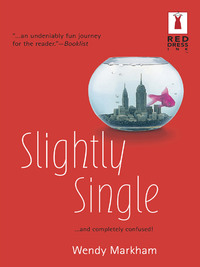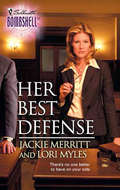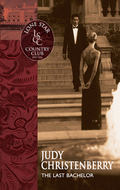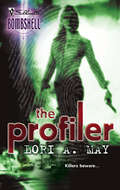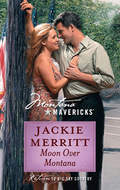Raamatut ei saa failina alla laadida, kuid seda saab lugeda meie rakenduses või veebis.
Loe raamatut: «Slightly Single»
WENDY MARKHAM
is a pseudonym for New York Times bestselling, award-winning novelist Wendy Corsi Staub. She has written more than fifty fiction and nonfiction books for adults and teenagers in various genres—including contemporary and historical romance, suspense, mystery, television and movie tie-in and biography. A small-town girl at heart, she was born and raised in western New York on the shores of Lake Erie and in the middle of the notorious snowbelt. By third grade, she was set on becoming a published author; a few years later, a school trip to Manhattan convinced her that she had to live there someday. At twenty-one, she moved by herself to New York City and worked as an office temp, freelance copywriter, advertising account coordinator and book editor, before selling her first novel, which went on to win a Romance Writers of America RITA® Award. Slightly Single was one of Waldenbooks’ Best Books of 2002. Very happily married with two children, Wendy writes full-time and lives in a cozy old house in suburban New York, proving that childhood dreams really can come true.
To my beloved husband and our two beautiful children.
And, in gratitude, to “Will,”
without whom this book wouldn’t have been possible—
and without whom I have lived happily ever after.
Slightly Single
Wendy Markham

MILLS & BOON
Before you start reading, why not sign up?
Thank you for downloading this Mills & Boon book. If you want to hear about exclusive discounts, special offers and competitions, sign up to our email newsletter today!
Or simply visit
Mills & Boon emails are completely free to receive and you can unsubscribe at any time via the link in any email we send you.
This book wouldn’t exist if it weren't for my old and new friends at Silhouette, whose encouragement and enthusiasm made the writing and editorial process a pleasure. With warmest gratitude to everyone who played a role, especially Joan, Karen, Cristine, Margaret and Tara! I would also like to add sincere thanks to my agent, Laura Blake Peterson, for her constant support. And, of course, I must fondly acknowledge all the fabulous city gals who crossed my path during my own Slightly Single era, always there to share margaritas, cigarettes, dance floors and wee-hour cabs to the boroughs. Cheers to all, wherever you’ve landed!!!
Contents
Chapter One
Chapter Two
Chapter Three
Chapter Four
Chapter Five
Chapter Six
Chapter Seven
Chapter Eight
Chapter Nine
Chapter Ten
Chapter Eleven
Chapter Twelve
Chapter Thirteen
Chapter Fourteen
Chapter Fifteen
Chapter Sixteen
Chapter Seventeen
Chapter Eighteen
Chapter Nineteen
Chapter Twenty
Chapter Twenty-One
Chapter Twenty-Two
Chapter Twenty-Three
One
Here’s how my life will turn out: I’ll marry Will. He’ll become a big stage star and I’ll give up my advertising career to stay home with our children. We’ll stay in New York rather than going South or West (because I desperately have to have all four seasons), and someday we’ll turn into the kind of senior citizens you see sharing the same side of the booth at Friendly’s. Not that I’ve ever seen a Friendly’s in Manhattan, or that Will and I have ever sat on the same side of any booth in any restaurant, ever.
Will, after all, needs his space.
In restaurants.
In general.
I, on the other hand, need no space.
Which is exactly what I tell my friend Kate, in response to her infuriatingly serene “Everyone needs space,” over Tall Skim Caramel Macchiatos at Starbucks.
“I need no space,” I tell Kate, who rolls her fake aquamarine pupils toward her dyed-blond hairline. Kate grew up in the Deep South, where it’s apparently best to be a skinny blue-eyed blonde. Actually, speaking as a well-padded brown-eyed brunette New Yorker, it’s probably best to be a skinny blue-eyed blonde any place.
“Yes, you do need space, Trace,” Kate insists, with only a hint of the antebellum drawl she’s worked so hard to lose. “Believe me, you so wouldn’t want Will in your face every second of every day.”
Okay, the thing about that is…
I so would.
Do I seem pathetic? I do, don’t I? So I’d better not admit the truth to Kate, who has already declared that she’s worried about me. She thinks my relationship with Will is one-sided.
“No,” I lie, “not every second of every day. But that doesn’t mean I want him blowing out of here for summer stock in the Adirondacks for three months without me.”
“Well, I don’t think you have a choice. I mean, it’s not like you can tag along.”
At that, I focus on my beverage, attempting to stir the sweetened foam into the darker liquid below. It refuses to harmonize, clinging in wispy clumps to the wooden stirrer like the cottony clusters of mealy bugs on my sickly philodendron at home.
“Tracey,” Kate says in a warning voice, clearly on to me.
“What?” All innocence, I toy with my yellow plastic Bic cigarette lighter, flicking it on and off, wishing for the good old days when you could smoke anywhere you damn pleased.
“You’re not thinking of tagging along with Will this summer.”
“Why aren’t I?”
“Mostly because—hello-o?—you’re not an actress. You already have a career, remember?”
Oh, yes. The career. My entry-level job at Blaire Barnett advertising, where thanks to a glorified title and my tendency to pounce on new ventures before thorough investigation, I didn’t realize I was a mere administrative assistant until a few weeks after I started, when my boss sent me a plant for Secretary’s Day.
That would be the aforementioned insect-infested philodendron. Like my position at the agency, it seemed so promising that first day, all shiny-leaved and cellophane-and-ribbon-bedecked, with a card that read, Dear Traci (note the misspelling), Thanks for all you do. Best, Jake. I got it home, made it cozy on my lone windowsill…and, a week later, the mealy bugs moved in for the kill.
“I could quit,” I tell Kate, still toying with my lighter.
“Smoking?”
“Good lord, no. My job.” I toss the lighter on the table.
Mental note: Stop for more cigarettes on the way to meet Will.
“That’s what I was afraid of.” Kate, a refreshingly nonmilitant nonsmoker, smirks. Sips. Says, “So you’ll just quit your job after less than two months—”
“More than two months—”
“More than two months,” she concedes, “and—what? Follow Will to wherever he’s going to be? What will you do there?”
“Build sets? Waitress at some coffee shop? I don’t know, Kate. I haven’t thought it through yet. All I know is that I can’t stand the thought of spending the entire summer in this hellhole of a city without Will.”
“Does Will know this?”
There is nothing ambiguous about her question, yet I stall. “Does Will know what?”
“That you’re thinking of coming with him?”
“No,” I admit.
“When is he leaving?”
“In a few weeks.”
“Maybe he’ll change his mind between now and then.”
“No. He says he needs a break from the city.”
She raises an eyebrow in a way that hints at her suspicion: that the city is not all Will is trying to escape. If she says it, I will tell her she’s wrong.
But I won’t be sure about that.
And that’s the real reason I want to go away with Will this summer. Because ever since we got together three years ago, in college, our relationship has been about as stable as an Isuzu Trooper at eighty mph on a hairpin curve. In the rain. And wind.
When we met we were both juniors. Will had just transferred from a well-known Midwestern university to our upstate SUNY college. He had great disdain for the conservative, all-American mind-set that infused not just the school he’d left, but the family he was stuck with.
I could relate. Maybe that’s what first drew me to him. The tiny western New York college town I had grown up in bore striking similarities to the Midwest Will was fleeing.
There was the accent—the flat, wrinkle-nosed a that gives apple three syllables (ay-a-pple) whether you’re in the Chicago area or upstate New York.
There was my Roman Catholic religion, shared by every last person in my life but my friend Tamar Goldstein, the lone Jewish girl at Brookside High, who got to stay home while the rest of us went to school on the mysterious High Holy Days in October.
There was my sprawling extended Italian family, with its smothering traditions in which everyone was expected to participate: nine-thirty mass on Sundays, followed by coffee and cannoli at my maternal grandmother’s house and then spaghetti at noon at my paternal grandmother’s house. This is how every Sunday of my life began, and I continue to bear the scars aka cellulite everlasting.
Will is Protestant—his ancestors were from England and Scotland. He has no discernible accent; he has no cellulite. In his parents’ house, spaghetti sauce comes from a jar.
But he, like I, longed to escape the stranglehold of small-town life and had wanted to live in New York City for as long as he could remember. The difference was, he saw the State University of New York at Brookside as a giant leap toward his goal. I didn’t have the heart to tell him that Brookside might as well be in Iowa. He figured it out by himself eventually, and ultimately skipped graduation in order to get the hell out of town as soon as possible.
When we met that first semester of junior year, he had a girlfriend back home in Des Moines, and I was living at home three miles from campus, with my parents. Our coming together was a gradual thing, and the blame for that lies squarely with Will. In retrospect, I see that he was alternately torn between cheating on his girlfriend and dumping her—and me as well—in favor of screwing around.
He used to talk about her freely to me, in a maddeningly casual way that suggested he and I were friends. If I ever popped by his apartment unannounced and he was talking to her on the phone, he’d make no attempt to hang up and would tell me casually, when he finally did, “Oh, that was Helene.” I figured that if he considered us more than friends (his word) who made out whenever we got drunk and ran into each other in a bar, he’d be a lot more furtive about his girlfriend.
So her name was Helene, and, naturally, I pictured her svelte and exotic.
Then Will went home for Christmas break and entrusted me with the keys to his apartment so I could water his plants. Yes, he had plants. Not marijuana plants, which were frequently grown in the frat houses near campus. Not a token cactus or one of those robust rubbery snake plants that you can pretty much shove into a closet and not water for a year and still keep thriving.
No, Will had regular house plants, the kind that needed sunlight and water and fertilizer.
Anyway, this key-entrusting episode was before we were sleeping together but after he’d gone for my bra clasp enough times for me to invest in something suitably flimsy. My usual was an industrial-strength closure with four hooks and eyes on an elasticized strip the width of duct tape.
I was dazzled that he trusted me not just with the plants he’d bought at the local Wal-Mart garden shop in September, but with the entire contents of the apartment he shared with two roommates. Didn’t he suspect that I would spend hours going through the plastic milk crates he kept in his closet, reading letters from Helene and searching for photos of her?
I don’t know—maybe he did suspect. Maybe he wanted me to snoop. The photos weren’t hard to find. They were tucked in the front cover of one of those cloth-bound blank books, along with a note from Helene that read: Use this as a journal while you’re away so that one day we can read it together and I’ll feel like I was there with you.
I gloated when I saw that the book was blank.
Not nearly as much as I gloated when I at last laid eyes upon the enigmatic Helene in a photo. I had known she was blond, a fact Will had mentioned more than once. And okay, I’ll give her the hair. It was long and shiny and parted in the middle. But other than that, she was ordinary—even more round-faced than I was and wearing red plaid Bermudas that did nothing for her hips and even less for her thighs. She wore them with a red polo shirt, tucked in.
I have never in my life worn a shirt tucked in, but if I were so-inclined, I sure as hell wouldn’t tuck it into red plaid Bermudas.
I stopped worrying about Helene when I saw that snapshot.
Sure enough, when Will returned from break to find his plants thriving, his plastic milk crates apparently undisturbed, and the plate of homemade cream-cheese brownies I’d left on his kitchen table, he informed me that he and Helene had broken up on New Year’s Eve. I, in my not-just-friends-but-not-quite-more role, wasn’t sure how to respond to that news. I remember ultimately acting sympathetic toward Will, and inwardly slapping myself a high five because I had won. I had beaten out Helene. The shadowy hometown girlfriend had been eliminated from the competition.
A shallow, short-lived victory, because I soon discovered that I had a long way to go. Even now, three years later, the finish line eludes me.
Kate asks, “Don’t you think you should tell Will you’re quitting your job and going with him?”
“I didn’t say I was definitely doing it. I just said that I wanted to.”
Dammit. Kate’s looking at me like I’ve just told her that I may or may not mow down everyone in this Starbucks with a sawed-off shotgun.
“I have to go now,” I decide abruptly, picking up my white paper cup and my giant black shoulder bag.
“Me, too,” Kate says, picking up her white paper cup and her giant black shoulder bag. “I’ll walk you over to the subway.”
Great.
One crosstown block and one uptown block of Kate’s attempts to sell me on the many glorious pros of summer in the city. Laughable, because I’ve already spent enough steamy, putrid-smelling urban August days to last me a lifetime.
I’ll have lived here a year Memorial Day, having spent the first few months sharing a Queens sublet with a total stranger courtesy of a Village Voice classified. Her name was Mercedes, and the few times I saw her in passing, she looked stoned. Turned out she slept all day while I was out temping, and was out all night doing God knows what—I tried to ask, but she was evasive. We both moved out on Labor Day when the actor who had sublet us the apartment returned from summer stock. I never saw her again, but I wouldn’t be surprised if she shows up on an episode of COPS someday, vigorously denying something.
Thanks to my summer in a relatively affordable borough, I scraped together enough money to land a studio of my very own in Manhattan, in the East Village. Way east. Like, almost as far east as you can go and not be on the FDR Drive or in the river. The apartment has that kind of grimy and depressing thing going on. Like the Kramdens’ place in those Honeymooners reruns on Nick At Nite, it seems to exist only in grainy black-and-white, no matter how I try to jazz it up. Not that I’m trying so hard.
Kate—whom I met temping on my third day in New York and who lives in a brownstone floor-thru in the heart of the West Village, courtesy of her wealthy parents back in Mobile—thinks I should splurge on a bright-colored cover for my futon. I tell her that I’m broke, which is always true, yet in reality I don’t want to spend any money on my place.
Here’s why: because if I make it more like a home, then there will be a permanence about it—a sense that I’m there to stay. And I don’t want to stay alone in a drab East Village flat.
I want to live with Will.
Soon.
And forever.
“And just think,” Kate is saying. “Shakespeare in the Park.”
I shrug. “Maybe Will will do Shakespeare in summer stock.”
“You think?”
I shrug. Probably more like Little Shop of Horrors. Carousel, maybe.
“Italian ices from sidewalk vendors,” she pontificates. “Weekends in the Hamptons.”
I snort at that.
“I’ve got a half-share,” she points out. “You can visit me.”
She goes on about summer, which is hard to envision on this gray May Saturday morning, cool and drizzly.
This stretch of lower Broadway is teeming with multi-pierced NYU types, stroller-pushing families, packs of suburban teenagers and the ubiquitous sales-flyer-thrusters.
Kate and I dump our empty cups into an overflowing trash can on the corner of Eighth and Broadway. I leave her admiring a pair of hundred-dollar fluorescent coral-colored mules in the window of a boutique and descend into the depths of the subway.
On the uptown-bound side I wait for the N train, standing away from the track with my back almost against the wall, yet not touching it because you never know what kind of filth is just waiting to rub off on your Old Navy Performance Fleece pullover. My eye is peeled on a scruffy guy who’s pacing back and forth along the edge of the platform. First clue that he’s not all there: It’s forty degrees out and he’s shirtless, wearing shorts and ripped rubber flip-flops. He’s muttering to himself, something about lice—or maybe it’s lights—and I’m not the only one giving him a wide berth.
Every once in a while you hear about some innocent New Yorker getting shoved in front of an oncoming train. My friend Raphael was actually on the platform when it happened once, but the pushee rolled off the track in the nick of time. The pusher looked like a regular businessman, Raphael said. He was wearing a suit and carrying a briefcase. Turned out when the police searched him that the briefcase was full of live rodents. The significance of this escapes me, other than proving that you just never know who you’re dealing with in a crowd of strangers in the city, and it’s best to keep your back to the wall.
Which I do.
Finally, the telltale rumble just before a light appears at the end of the tunnel. As the N train roars into the station, I move cautiously forward, positioning myself in advance exactly where the door will open, something that’s possible only after several months of riding the same train every day.
The car is packed and too warm and smells of sweat and Chinese take-out. Hip hop music blares from the headphones of the guy next to me as I stand holding on to a germy center pole. As we lurch forward and the lights flicker, I keep my balance, thinking about Will, wondering whether he’ll be awake when I get to the studio apartment he shares with Nerissa, whom he met on an audition last fall. He likes to sleep past noon on Saturdays.
Does it bother me that he lives with another woman?
I want to say of course not.
But the reality is that I wouldn’t mind if Nerissa got pushed in front of an oncoming N train tomorrow. She’s lithe and beautiful, an English dancer in an off-Broadway show that opened a few months ago. She sleeps on a futon behind a tall folding screen from Ikea, and Will on his full-size bed…and never the twain shall meet.
Yes, I truly believe this. I force myself to believe it, because Nerissa has a boyfriend, a Scottish pro golfer named Broderick, and Will has me. Yet I’ve seen the way he looks at her when she drifts around wearing drawstring cotton pants over her dancer’s leotard, with no hips to speak of and high, taut braless breasts.
I am all flesh, by comparison to Nerissa or not; all hips and thighs and buttocks. As I said, my bras are not wispy scraps of lace and underwire and skinny straps; my undergarments are not what you would readily call panties, a term that brings to mind slender sorority girls with Neiman Marcus charges. Sturdy, no-nonsense cotton underwear is necessary to keep my natural jiggle and sag from jiggling and sagging to an unfortunate extreme.
Will adores real lingerie, the kind that undoubtedly fills the top drawer of Nerissa’s tall Pottery Barn bureau. This, I know about Will, because once, during our senior year of college, when we had been officially dating for a few months and I knew we were about to become lovers, he bought me a teddy. It was a champagne-colored satin-and-lace getup from Christian Dior, two sizes two small—which I didn’t know whether to take as a compliment or a hint.
Every time I wore it, I put on a bra and underpants underneath. The bra because not wearing one would be obscene with my figure; the underpants because every time I moved, the teddy’s crotch unsnapped because I was too tall or too wide for it, or, sadly, both. Finally, I replaced the snaps with a hook-and-eye combo. I had learned sewing in Brookside Middle School home ec, though back then never dreamed that I would use my skills for something so illicit as replacing the crotch snaps on a sexy undergarment presented by a man with whom I would have sex before marriage.
Anyway, it was hard to tell whether Will was ever truly turned on by the sight of me in that crotch-doctored teddy with my thick duct-tape-like bra straps peeking out at the shoulders and my sensible cotton Hanes riding lower on my lumpy thighs than the french-cut teddy. I like to think that he found me irresistible, but in retrospect, I’m not certain that’s the case.
When we made love for the first time in college, it was after drinking two bottles of red wine in the apartment he shared with two gay theater guys who were out rehearsing for the campus production of Guys and Dolls, for which Will wasn’t cast. For that oversight he blamed Geoff Jefferson, the hetero-phobic (according to Will) theater professor. We drank wine and he verbally trashed Geoff Jefferson and we drank more wine and then we had sex on the nearest bed we stumbled to, which belonged to his roommate André. That’s where I lost my virginity, on six-hundred-thread-count Egyptian cotton sheets imported from Italy, staring over Will’s sweaty shoulder at a poster of Marilyn Monroe on a subway grate with her skirt blowing up around her.
Speaking of the subway, I get off at Times Square and emerge onto the bordering-on-garish family-friendly street filled with oversize theme eateries and warehouse chain stores where there were once peep shows, topless bars and porno flicks. Shoulder to shoulder with immigrants with complexions of various hues, overweight tourists with diagonal purse straps and a class trip group collectively gaping at the MTV studio across Broadway, I walk north and west: two short uptown blocks and two long crosstown blocks.
I buy my Salem Lights and a copy of today’s Post from the familiar newsstand on the corner, where the Pakistani proprietor sometimes greets me like an old acquaintance and sometimes appears not to recognize me at all. It’s unnerving.
Today, he gives me a big grin. We’re long-lost friends again.
“Hello!” he pretty much shouts, as is his way. “How you today?”
I grin back. “Not bad. How about you?”
He shakes his head at the misty sky. “This weather. Too cold. Too gray.”
I nod. I do trite conversation very well. “Seems like summer’s never going to come.” See?
“Oh, it’s coming,” he says with the conviction of a waiter at Smith & Wollensky vouching for the prime rib. “Then when it gets here, you complain.”
I wonder whether he’s employing the collective you, or if I’m supposed to take it as a sign that I’ll be miserable this summer, not just because the city is so goddamned hot from June through September, but because Will won’t be in it with me.
Tasuta katkend on lõppenud.
